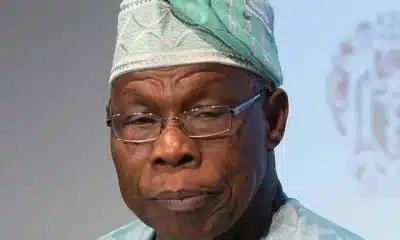Top Stories
No section of Nigeria has not planned secession – Obasanjo

Former President Olusegun Obasanjo has asserted that no ethnic group should be punished for secessionist tendencies, as every region in Nigeria has, at one time or another, contemplated breaking away.
He spoke on Tuesday while hosting members of the League of Northern Democrats, led by former Kano State Governor Ibrahim Shekarau, at the Olusegun Obasanjo Presidential Library in Abeokuta, Ogun State.
He said: “I think all of us in Nigeria have to rethink. It bleeds my heart when people say because the Igbos had carried out secession, an Igbo man cannot be the president of Nigeria. I say what nonsense? There is no section of Nigeria that has not planned secession.”
The former president argued that the foundational problem plaguing Nigeria is regionalism, pointing out that it has deepened the divide among Nigerians and delayed the country’s progress.
Obasanjo went on to question the emphasis on regional leadership and called for a shift in mindset towards national unity.
“One of the things I always question myself about is, why should my being a proud Yoruba man be in the way of my being a Nigerian? I could have been born in Sokoto or Maiduguri, and I would still be a Nigerian. My being Yoruba should not be an enemy of my being Nigerian,” he said.
The former president lamented Nigeria’s lost potential on the global stage, stating that while the country was once regarded as a “giant in the sun,” it had since fallen short of expectations.
“At independence, the world was talking about Nigeria as the giant not just in Africa but in the sun. We have disappointed ourselves, Africa, the black race, and the world. That is the truth,” Obasanjo declared.
He urged Nigerians to stop focusing on regional or religious affiliations when selecting leaders, arguing that competence and integrity should be the top priorities.
“If we do not get the best man for the job, it doesn’t matter where he comes from, we are deceiving ourselves,” he added.
